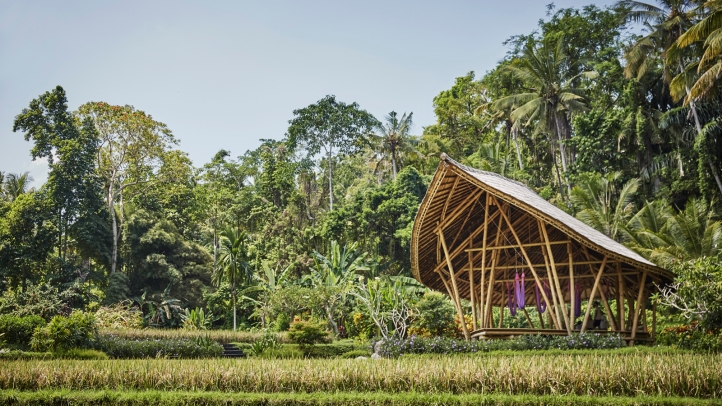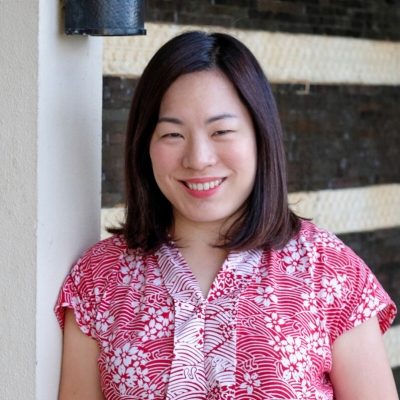10 Ways to Go Natural in Bali




They say creativity awakens when resources are limited; when it comes to working with the world around them, the Balinese are "naturals." From building materials and alcohol production to an island-wide UNESCO-listed irrigation system, the Balinese are masters at using sustainable materials in the engineering and functions of modern life and have been doing it long before sustainability became a catchword. Resourceful and creative, such natural inventions have been preserved over centuries and remain in wide use today. Here are 10 of the best ways to go natural in Bali:
1. Balinese architecture is renowned for its use of sustainable natural materials such as thatch-roofing, bamboo pillars, woven bamboo, coconut wood, teak wood and river stones. At Four Seasons Resort Bali at Sayan, the Dharma Shanti Bale is 100 percent made from locally-sourced bamboo, which not only ensures an incredibly durable edifice but one that is also aesthetically pleasing.
2. The use of bamboo is not limited to building; it is widely used in household items such as sokasi, a hand-woven decorated box originally used to store food and daily offerings to the gods. Learn how to make your own sokasi and take one home as a souvenir at Ganesha Cultural Centre.
3. Natural offerings are made daily, usually containing fruits and flowers, sugar cane and some grains of rice for the gods. Banana is always used to represent how precious each life is; banana trees die after bearing fruit just once, and a new shoot starts growing from the root. You may also see unnatural items such as candy, money and cigarettes, which are offered as souvenirs to ancestral guardian spirits; the candy is for children, cigarettes for old men, and money for other relatives.
4. Leaves are used widely in Balinese cooking, such as pandan and banana leaf, which add a unique scent and flavour to dishes and also provide a natural takeaway container. Think about take-out, but instead of cartons or plastic, the wrap is a water-tight banana leaf. Learm more about Balinese cooking at Four Seasons Resort Bali at Jimbaran Bay.
5. The fun part! Balinese-Hindus enjoy traditional booze or tetabuhan as they call it, which is consumed during temple ceremonies or mecaru to evoke harmony. They are made from fermented natural ingredients; brem from glutinuous rice with a sweet and acidic taste, and arak and tuak from coconut trees.
6. The UNESCO World Heritage-listed Subak irrigation network exemplifies the Balinese philosophy of Tri Hita Karana, aimed at finding balance between the realms of the spirit, the human world and nature. Subak focuses on a cooperative water management system of canals and weirs that use natural methods and the force of gravity to channel water from the lakes and rivers and distribute it equitably to all farms across the entire island. Other natural farming methods can be seen around the island including many farmers who still plow with the help of cows instead of using diesel-based tractors.
7. Brought to Bali from Java, jamu herbal drinks are used by traditional healers to cure various ailments. This herbal medicine elixir is made from indigenous botanicals including leaves, seeds, bark, roots, rhizomes, fruits, flowers and stems, and a daily dose of jamu is believed to ward off free-radicals and cleanse the liver. Jamu is available at our Spa reception and also served during breakfast at Four Seasons Sayan.
8. Bali is renowned for its beauty and wellness rituals such as lulur, the ancient skincare secret of Javanese princesses. Brought to Bali during the exodus of the Hindu royalty and intelligentsia in the 15th century, lulur means "coating the skin" and is usually made of turmeric. At Four Seasons Sayan, The Sacred River Spa uses various other ingredients including red ginger, rice and spices to alleviate muscle stiffness and warm the body. The Spa also pays homage to the rice farmer’s penchant for using river stones to scrub off the day, with its Batu Kali treatment.
9. No doubt you will see Balinese dressed up in ceremonial attire during your time on the island; their outfits feature beautiful woven fabric called songket. Hand-woven using natural protein fiber from silk worms and hand-dyed using plants, roots, leaves and fruit peel, songket is made thread-by-thread using a wooden weaving machine. Try your hand at it at Ganesha Cultural Centre.
10. And finally, WWF has Earth Hour; Bali has Nyepi: 24 hours of silence intended to give Mother Nature a rest and restore balance and harmony to the world. A purification ritual for the Balinese Saka New Year, Nyepi forbids any form of activity whether work, entertainment or pleasure, travelling and even talking or eating for strict observance. This results in zero noise and pollution on this day each year, fresher air and a gazillion stars shining crystal clear in the sky. A truly special way to start a New Year and show gratitude to the world around us, the world that gives us so much to use every day in every way.

Jimbaran, 80361
Indonesia

Jimbaran, 80361
Indonesia



 @FourSeasonsPR
@FourSeasonsPR